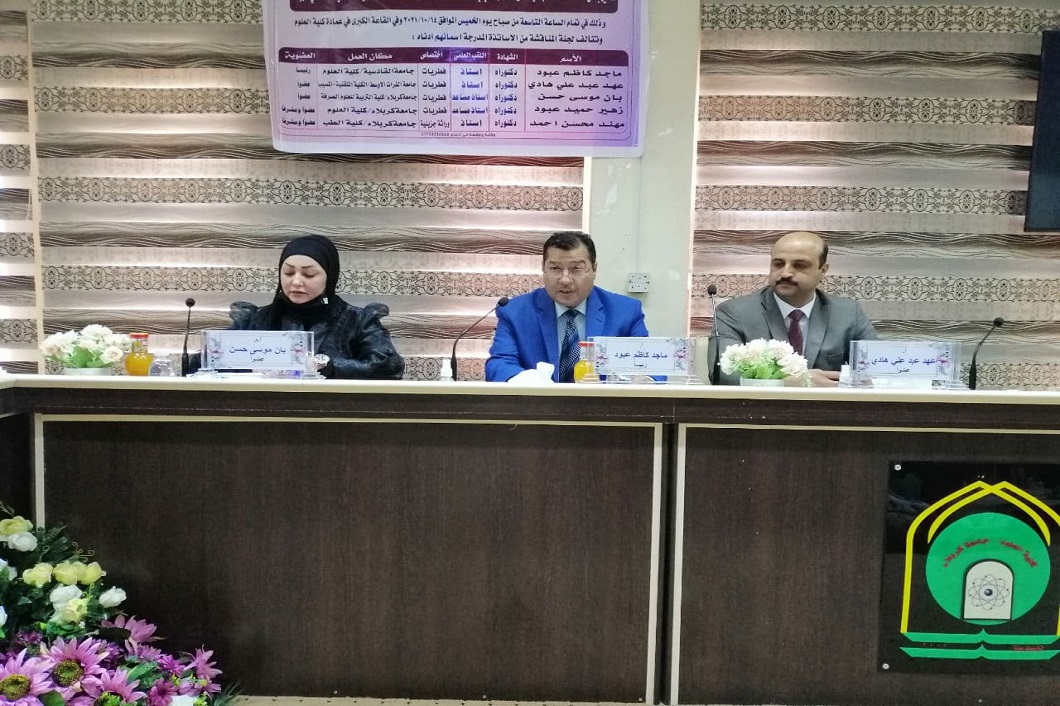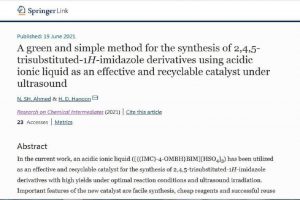Under the auspices of the President of Kerbala University, Prof. Dr. Basem Nayel Al-Saedi, and supervision of the Dean of the Faculty of Science, Dr. Jassim Hanoun Hashim, the master dissertation of the student Nariman Hameed Turki, in the Biology department, has been conducted in the faculty of science, entitled ” Effect of some plant extracts on Candida spp. Isolated from the genitourinary system of women in Kerbala”. This took place in the Great Hall of the College of Science on Thursday 14/10/2021 AD.
The thesis aims to study the effect of some plant extracts on the yeast Candida spp isolated from the urinary system. The current study has included the collection of 75 samples from different clinical cases, which are 50 samples of vaginal swabs and 25 urine samples for women from Holy Kerbala who suffer from vaginal infections and urinary tract infections. The results showed that the percentage of fungal infection in vaginal swabs samples was 60%, and the non-fungal infection was 40%. As for urine samples, the fungal infection rate was 44%, while the non-fungal infection was 56%. The results showed that the highest incidence of infection was at the age of 25-35, which amounted to 51.21%, and the lowest rate of infection at the age of more than 55 years was 9.75%; The percentage was increasing among married women, reaching 75.6%, compared to 24.4% for single women. The percentage also increased among pregnant women, reaching 60.9%, compared to 39.1 for non-pregnant women. The results also have recorded that C. albicans showed the highest frequency of Candida spp. In both urine samples and vaginal samples. Furthermore, there were isolates of C. albicans that were resistant to antifungals, 7 isolates were resistant to fluconazole and one isolate was resistant to all antifungals.
Finally, the study has showed that there is an inhibitory effect for each of the studied plant extracts. Both oak and pomegranate peels had a broad-spectrum antimicrobial effect on resistant and sensitive Candida isolates, while green tea extract showed no significant efficacy. And that there is a clear synergy between pomegranate peel extract and the antifungal AmB.

































































